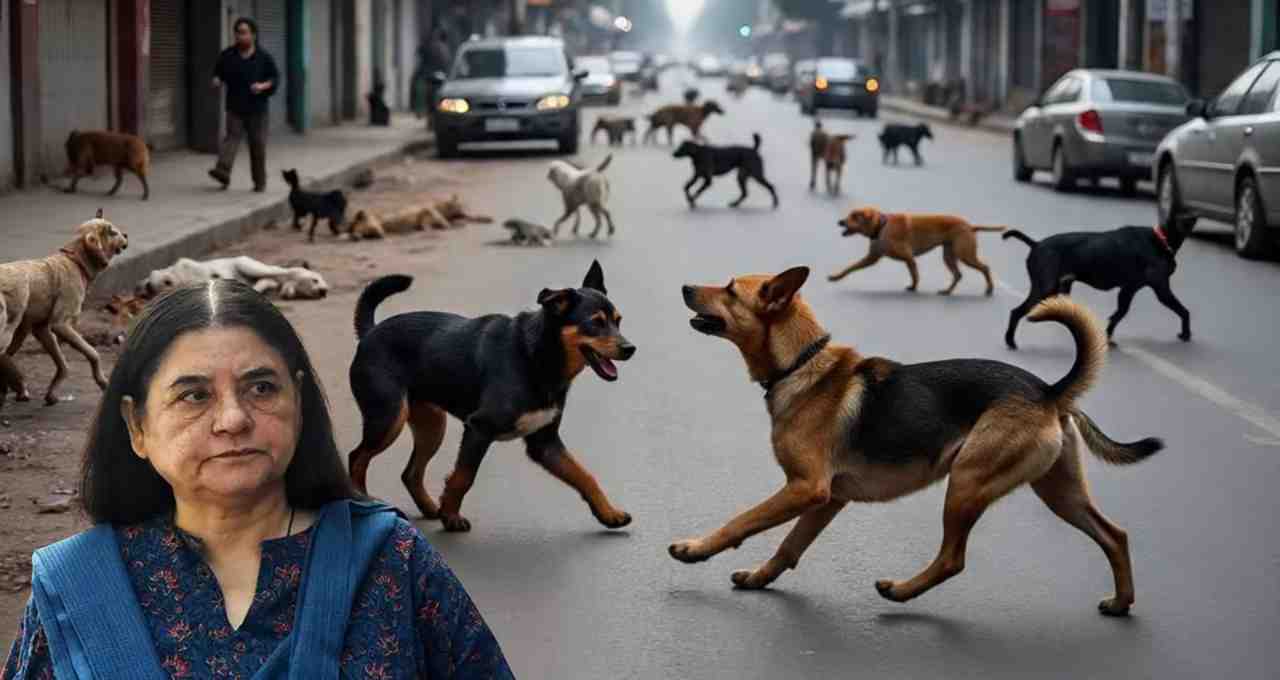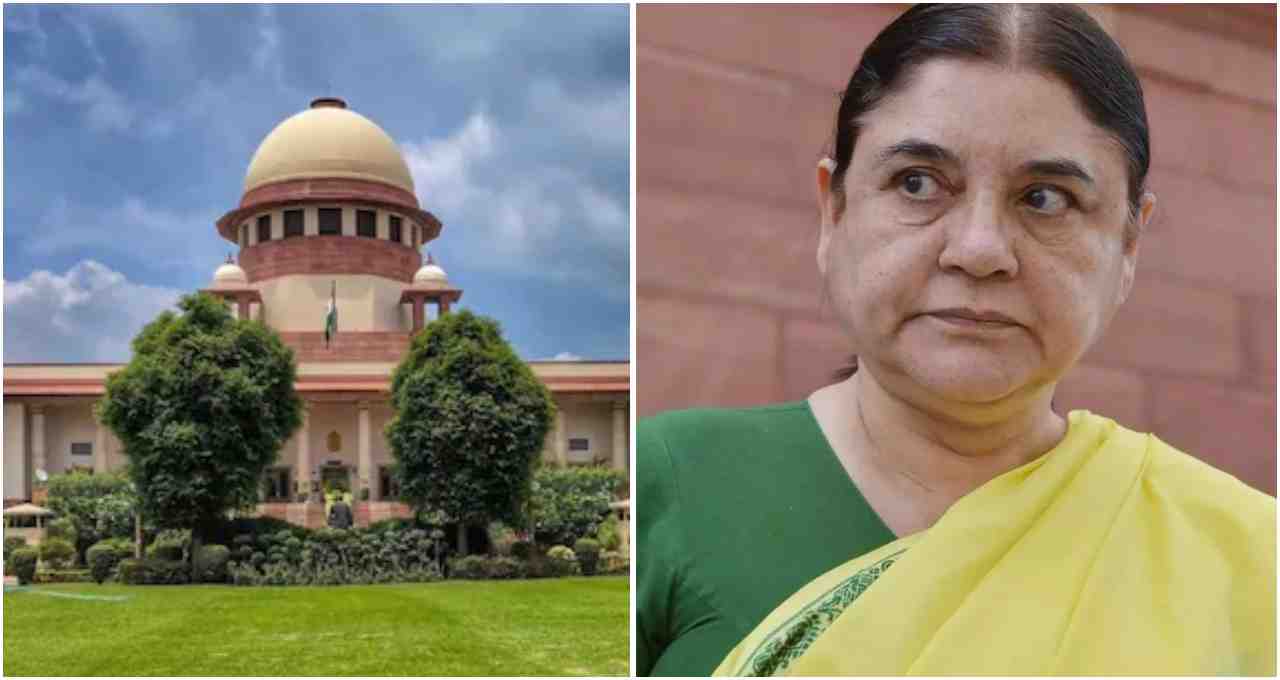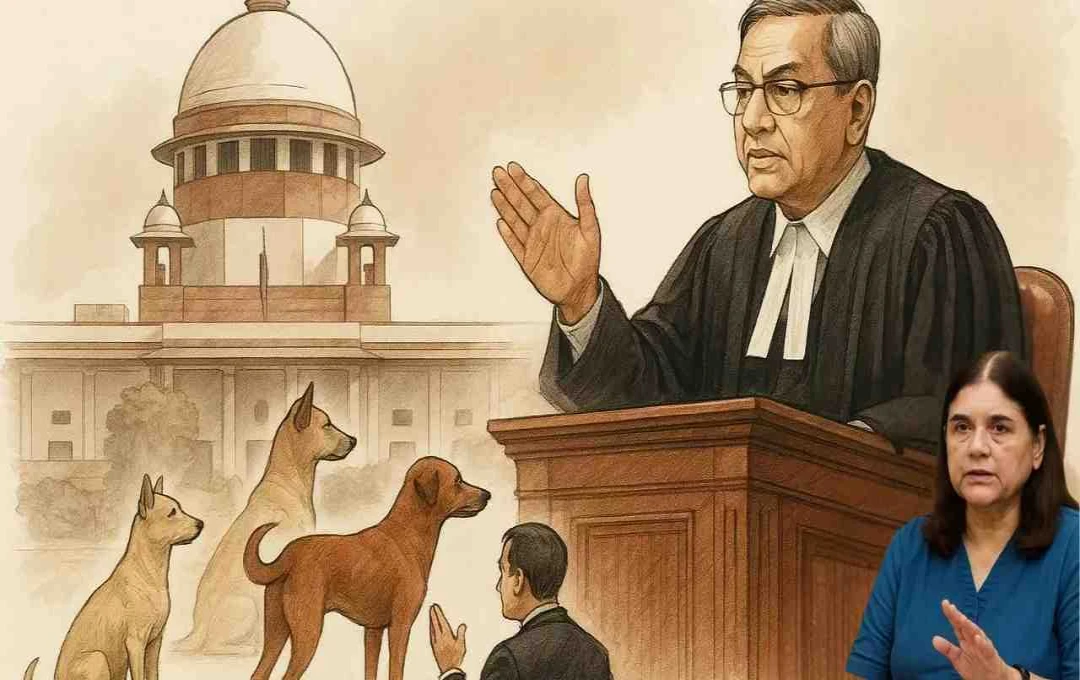The Supreme Court has ordered the capture of stray dogs in Delhi-NCR and their placement in shelters, a move that Union Minister Maneka Gandhi has opposed, calling it impractical and expensive. Animal lovers in Delhi have protested against this, demanding sustainable solutions from the government.
Delhi Stray Dogs: The Supreme Court has ordered the Delhi government and municipal corporations to capture all stray dogs in the Delhi-NCR region and place them in shelters, citing the increasing number of stray dogs. On Monday, animal lovers, including Union Minister Maneka Gandhi, gathered at India Gate to protest against this order. Maneka Gandhi described the plan as expensive and impractical, expressing concerns about its environmental and social impacts. Meanwhile, the government has announced that it will formulate a policy to implement the order.
Maneka Gandhi's Protest

Maneka Gandhi stated that approximately 3,000 pounds would need to be created in Delhi to house the estimated three lakh stray dogs, equipped with water, sheds, kitchens, and watchmen facilities. She described the plan's estimated cost of 15 thousand crore rupees as beyond the Delhi government's budget. Furthermore, feeding the captured dogs would cost approximately 5 crore rupees per week, which could be a heavy burden on the public. She termed it not only expensive but also dangerous for the ecological balance. Maneka Gandhi alleged that the case was based on false news, which claimed a girl was attacked and died due to dogs, while the actual death was due to meningitis.
Environmental Hazard and Social Tension
The former Union Minister warned that if stray dogs were removed from Delhi, dogs from Ghaziabad and Faridabad would return to Delhi within 48 hours because food is readily available here. She said, "If there are no dogs, monkeys will come onto the streets." Maneka Gandhi cited the example of Paris, where the city was overrun with rats after dogs and cats were removed in the 1880s, disrupting the ecological balance. Additionally, she stated that capturing dogs in neighborhoods could increase conflict and social tension, as many people feed the dogs and will oppose their capture.
Government Already Had a Solution Roadmap
Maneka Gandhi said that the government already had a plan that could reduce the number of stray dogs and biting incidents within two years. This plan included strict sterilization of dogs, vaccination against rabies and distemper, a ban on moving dogs from one place to another, operation of ABC (Animal Birth Control) centers by recognized institutions, and a local residents' monitoring committee. She also said that 70 percent of biting cases are from pet dogs, so it is also necessary to stop the uncontrolled sale of pet dogs.
Protest and Police Action

Animal lovers, feeders, and rescuers from Delhi-NCR gathered at India Gate on Monday to protest against the Supreme Court's order. Protesters said that the problem of stray dogs has been exaggerated by the media, while according to government data, there were only 54 suspected rabies deaths in 2024. They demanded strict adherence to ABC rules, sterilization and vaccination, returning dogs to their localities after sterilization and vaccination, and cooperation with local feeders. Police detained some protesters, but the protest continues.
Government Response and Future Plans
Delhi Chief Minister Rekha Gupta has acknowledged that the problem of stray dogs has become serious and the government will soon formulate a policy to implement the Supreme Court's order. Delhi Development Minister Kapil Mishra expressed hope that this step will free the city from the threat of rabies and stray animals, ensuring the safety of citizens.













